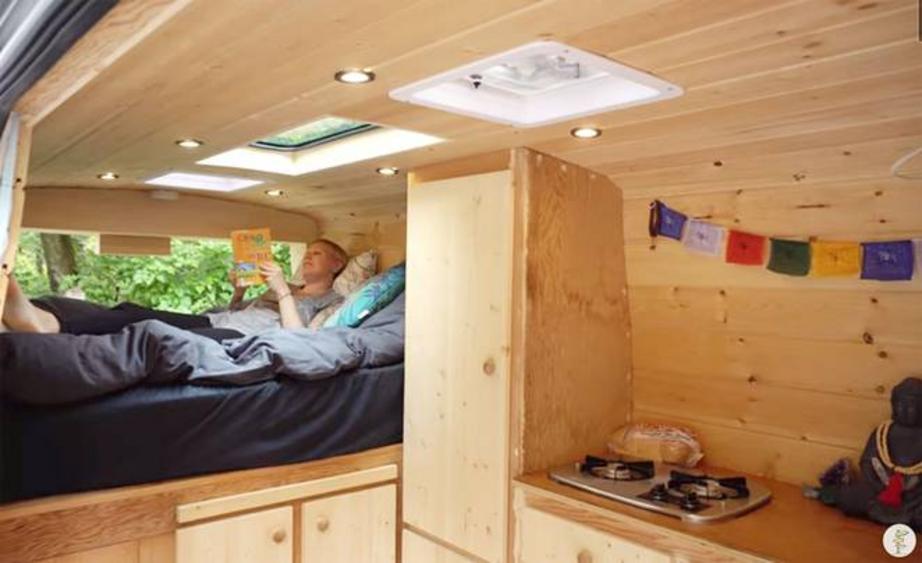For this woman, van dwelling is her solution to high rents
Rents and real estate prices in major cities like Vancouver are increasing. While it remains difficult to find an affordable place to rent or buy, policy solutions have been slow in coming, and the lack in rental vacancies have been made worse by other factors such as AirBnb rentals. All these issues are prompting some to get creative with affordable housing solutions, one of which is living in converted vehicles.
Atli is one of these people who have decided to call a converted van home. As a transit bus driver, Atli lives and works in Vancouver, which has one of the most expensive housing markets in the world. We get a tour of Atli's calm little space via Mat and Daniele (previously) of Exploring Alternatives:
Atli's unusual path toward van dwelling came a few years ago, when Atli was working full-time. She noticed that there were a number of bus drivers living in RVs and converted vehicles beside the bus depot, under the bridge. While some of her coworkers ridiculed these vehicle owners, she realized that they were saving a lot of money living in this way, and that seed of an idea was planted in her head. It took a couple of years for that idea to become reality, and now Atli is onto her second van, a 2016 Ford Transit that she lives in full-time.
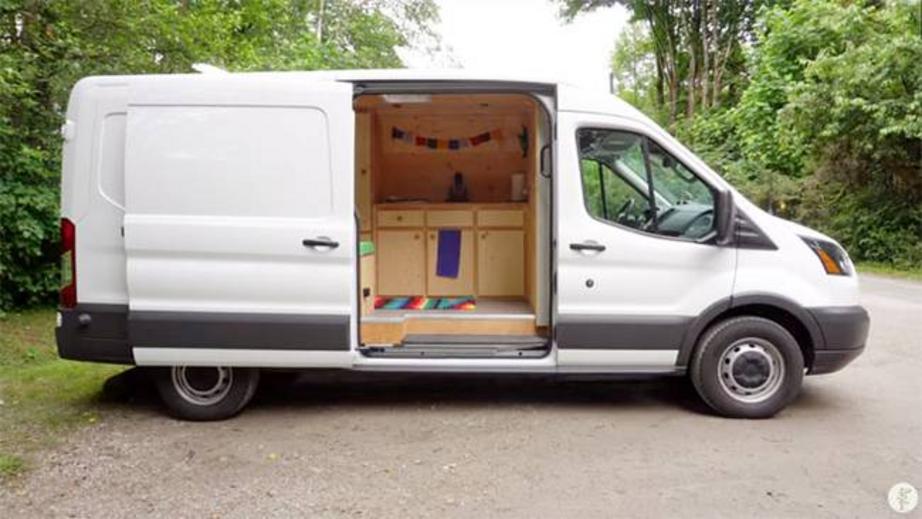
Atli's van conversion, nicknamed T-Rex, is simple but feels comfortable and homey, thanks to the minimalist design and the use of wood panelling throughout. The van is fully insulated all around with fibreglass insulation, rigid foam insulation (not the greenest nor safest options, but certainly cheap) and a vapour barrier to help prevent condensation forming in the interior, as Vancouver's climate can get quite wet.
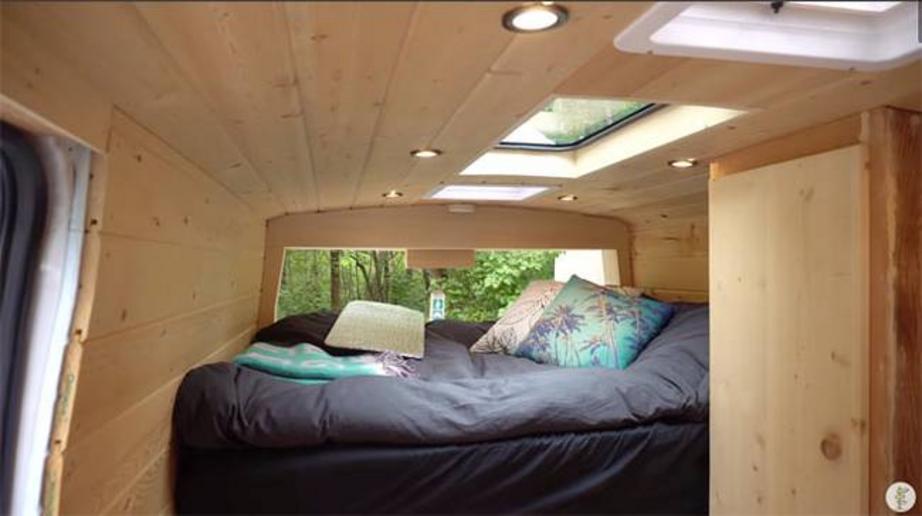
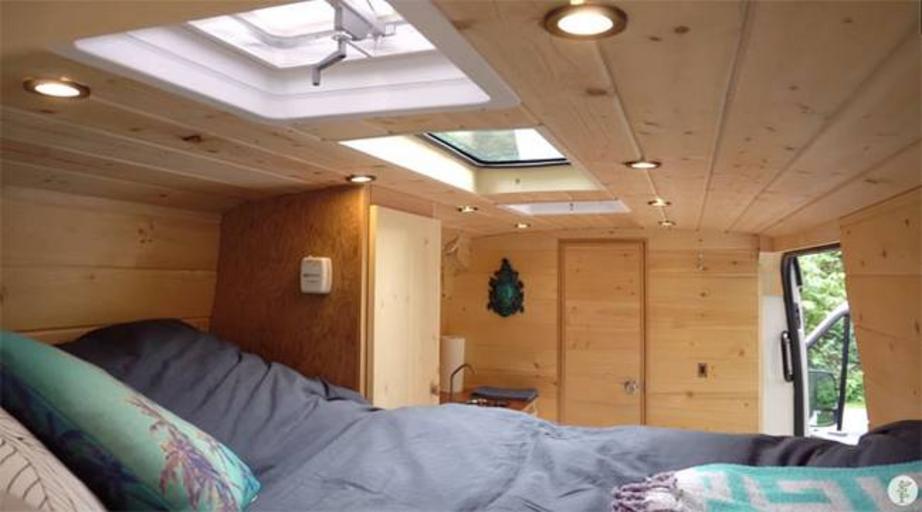
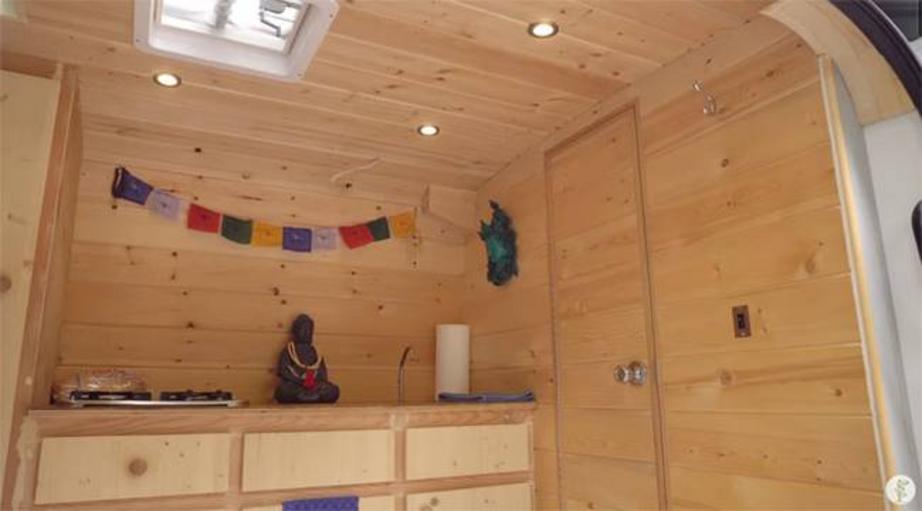
There's a large open space as soon as you come in, with a small kitchen and storage on the other side. The kitchen has a two-burner propane stove and a small sink, which operates with a water pump. Atli plans to install a bamboo counter and more overhead cabinets later on. In addition, there's a closet here, which hides her clothes and offers a place to store her folding chair.
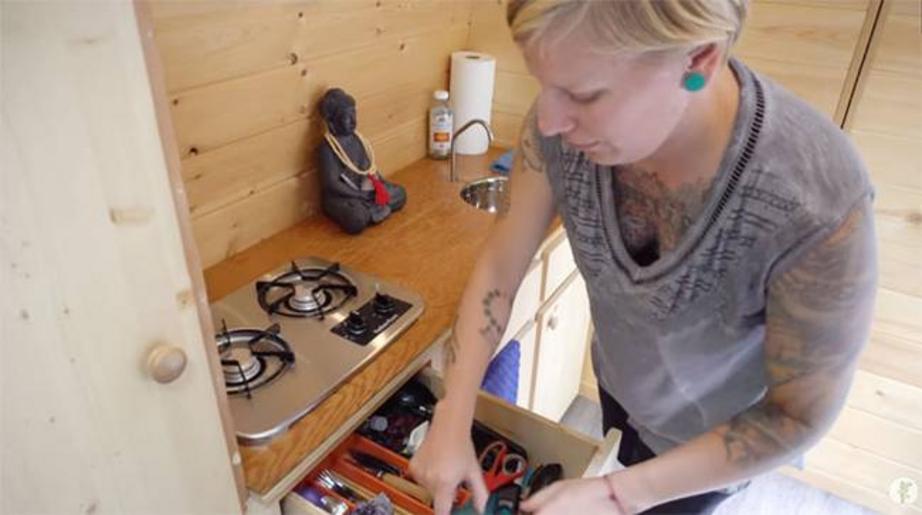
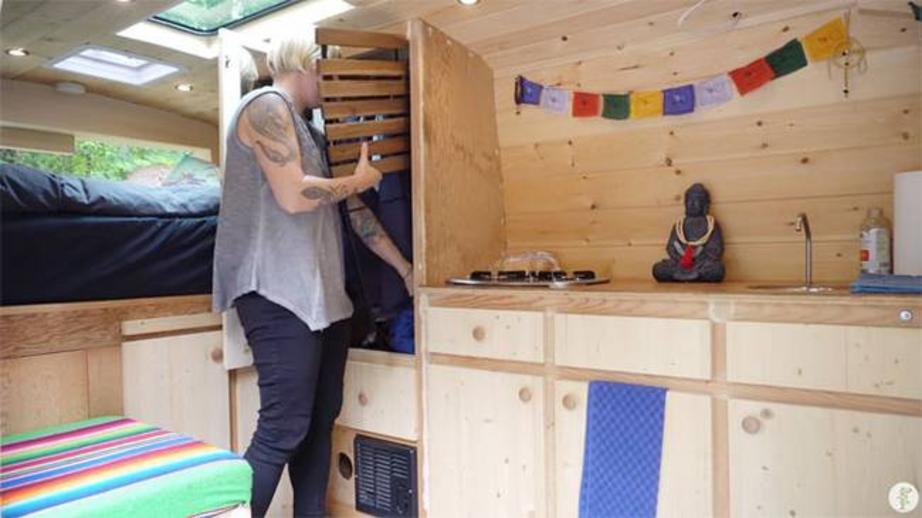
The bed platform provides more storage, part of which features an extra door designed to accommodate Atli's sitar, once the bench's padded top is removed. Under the bed is a Hypervent mat, something from the marine supply store which prevents condensation (and therefore mold) from forming under the mattress.
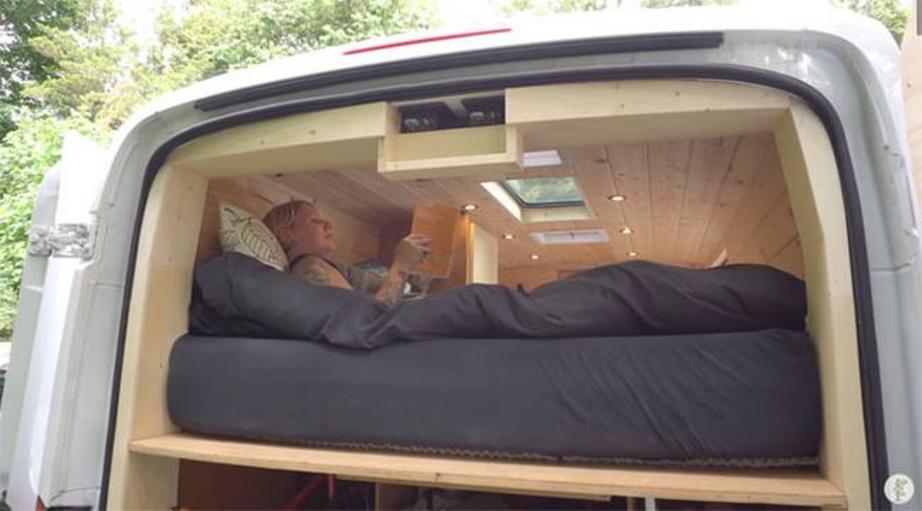
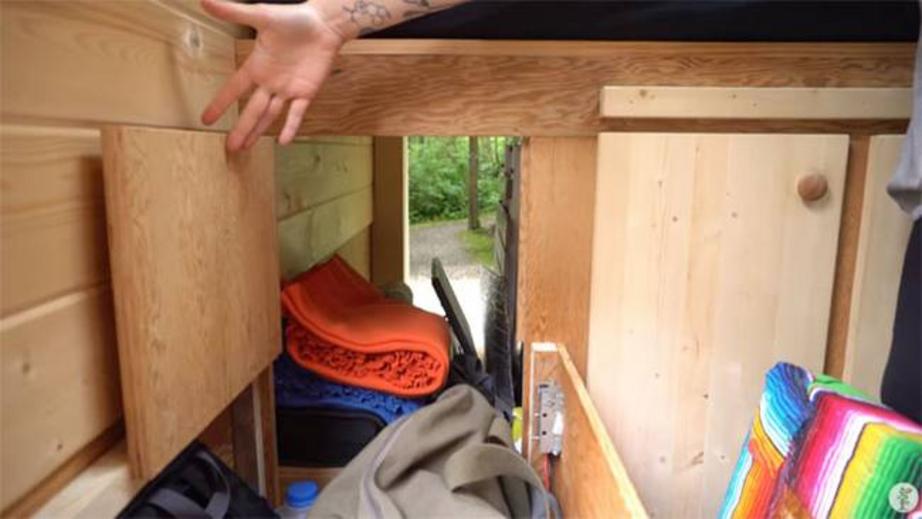

There's also a convenient table that can roll out and back in when it's not in use.
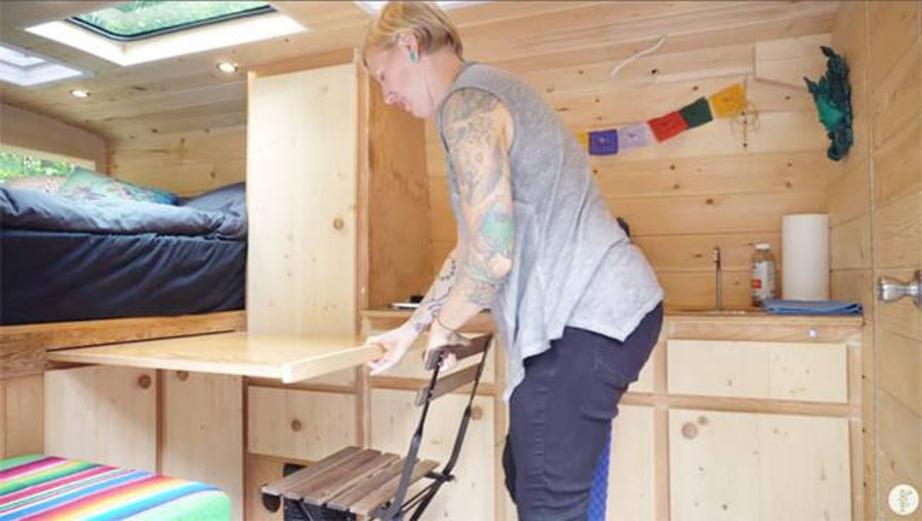
The interior is lit with three skylights; two of which can be opened, and one of which is outfitted with a mechanical fan to increase ventilation. All three can be stuffed with insulation to block out light. Atli purposely chose a van without windows, as it was cheaper, and it offers more privacy, something that she values, after years of renting and sharing a home with roommates.
For safety, the home is also equipped with a combination carbon monoxide and propane gas alarm, and there's an extra wall and door between the cabin and the driver's seat up front. There is no bathroom, but that's where Atli's gym membership and public bathrooms come in handy.
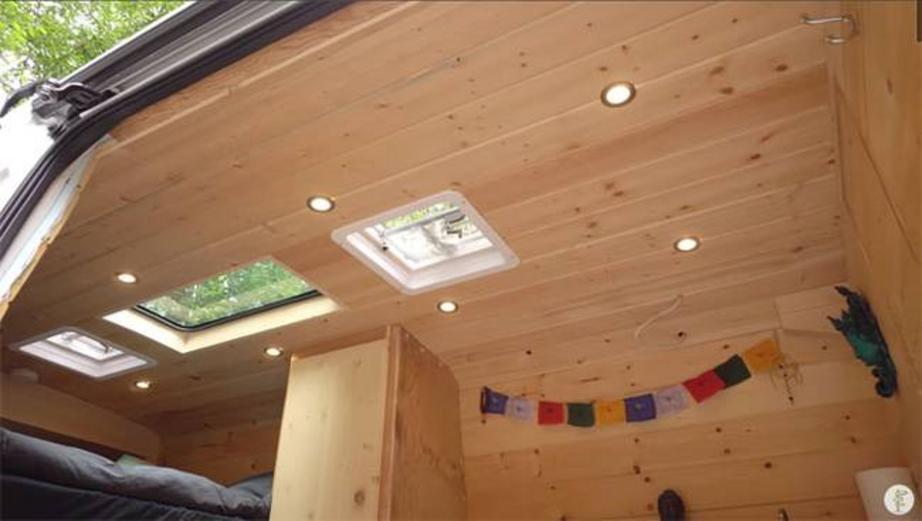
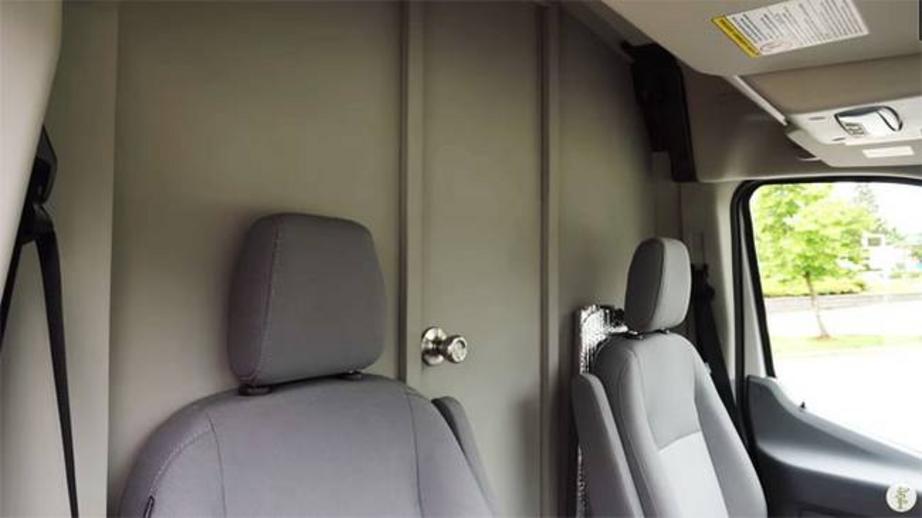
At the rear, there's plenty of space for Atli's bike, inflatable kayak and other gear. The van gets its power from a solar panel, which is hooked up to a Goal Zero inverter, a 100-AmH AGM (absorbent glass mat) battery, which gets charged using a solenoid that is hooked up to the van's AGM truck battery.
Atli's choice to live in a van has enabled her to cut down on expenses significantly, which means she can now work part-time instead of full-time. During winters, she can now travel to warmer climates down south, in particular the Rubber Tramp Rendezvous in Quartzsite, Arizona:
Living in a van allows me to work less and have a lot more free time, and not have to spend as much money on living expenses. I get to live by myself and have everything that I want it, and then I get to move my whole house anywhere I want to take it, which is also super awesome.


Housing policies can be slow to change, so for Atli, this is her long-term housing solution to her city's affordability problem. She loves it so much that she plans to live in her van for not only the foreseeable future, but also for many years to come. To help support the van-dwelling community in the city, Atli has also recently launched a Vancouver Vehicle Dwellers Meetup, at the Spanish Banks during the first Sundays of every month during summer. To see more, visit Exploring Alternatives.

